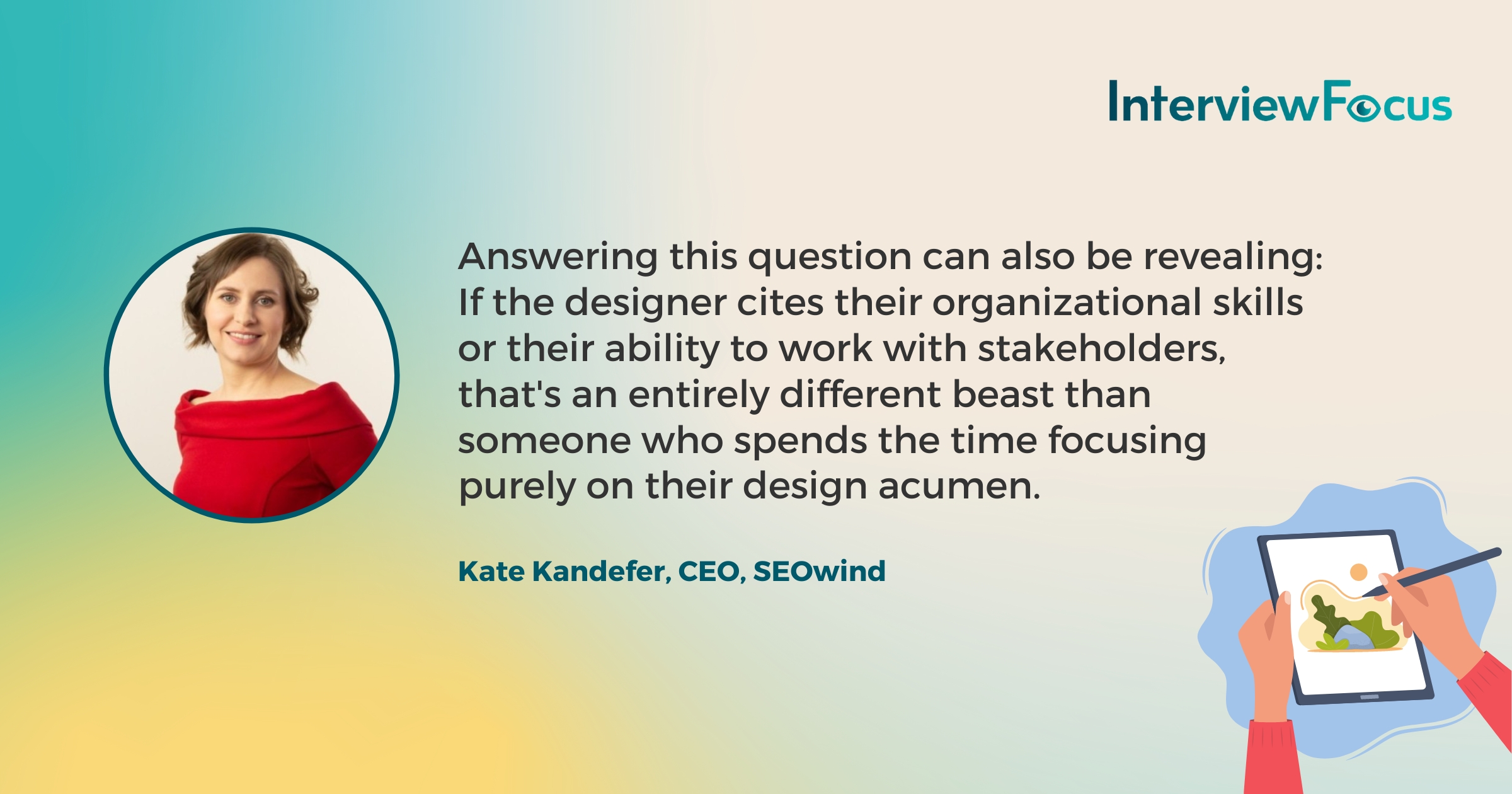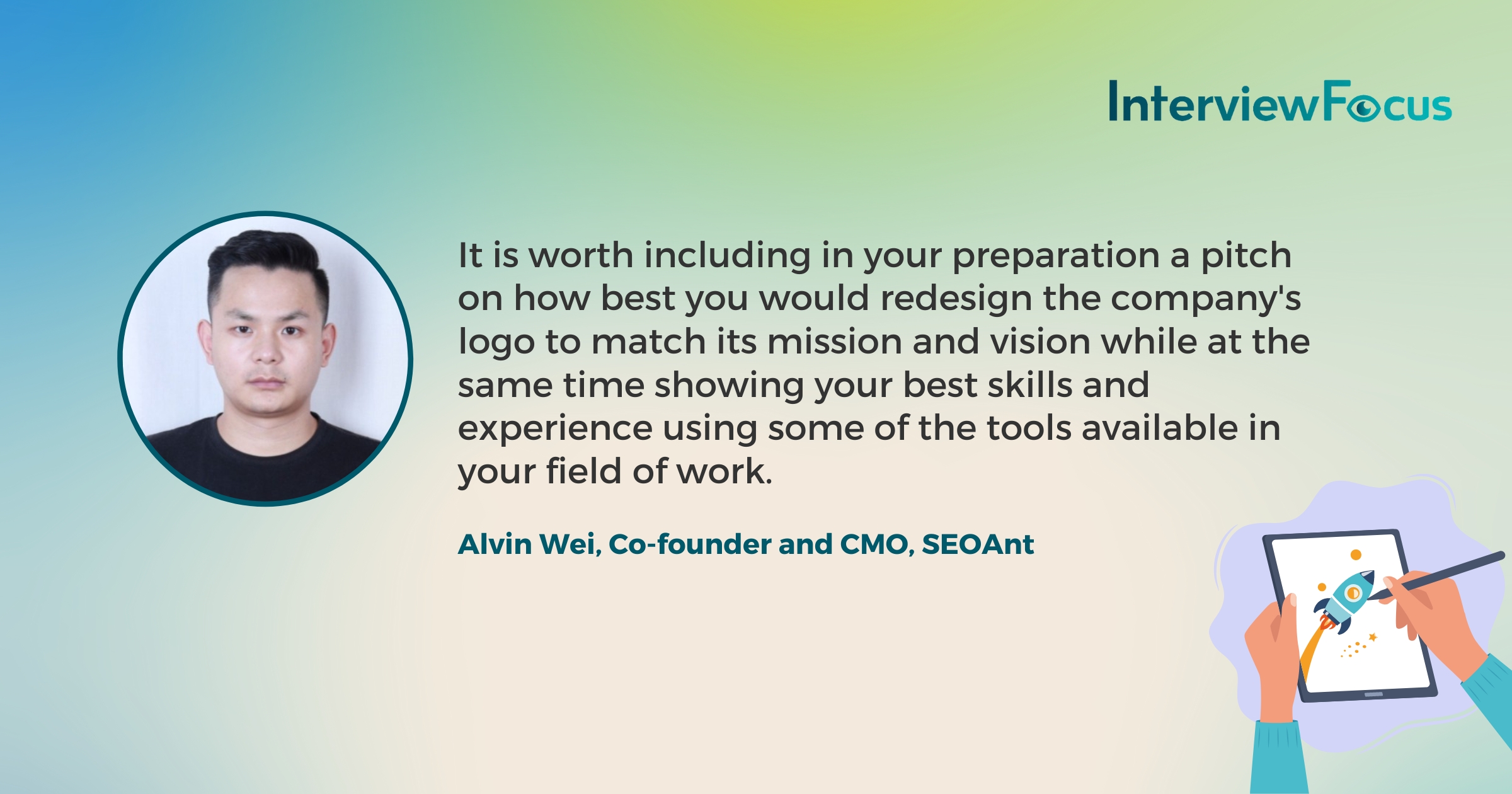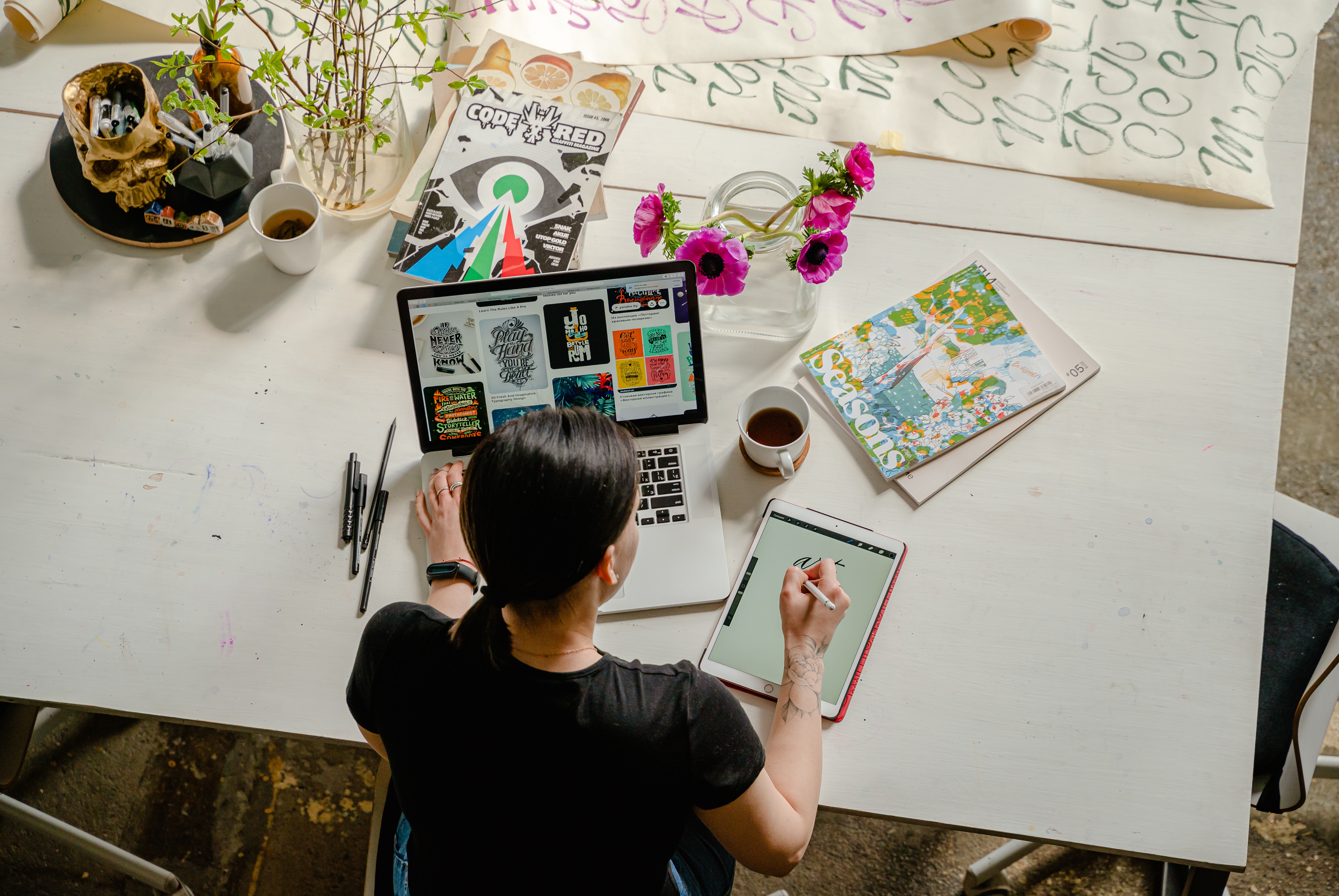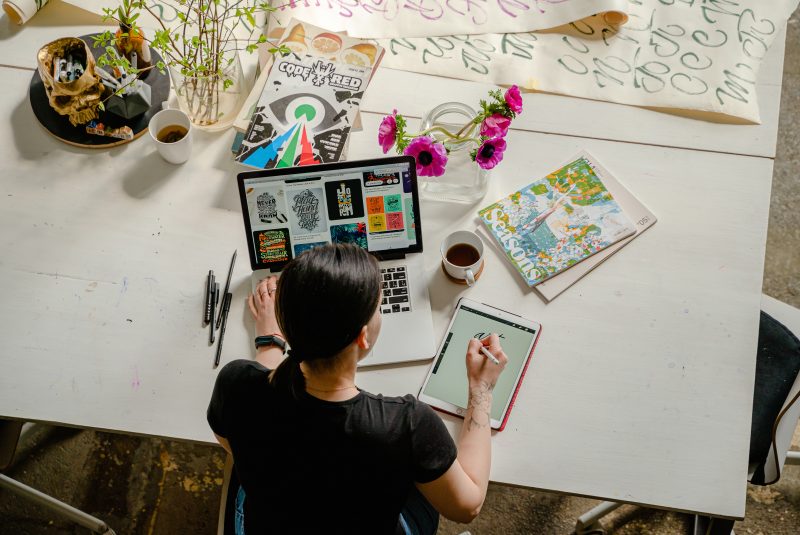From “how are you going to respond to requests for changes?” to “how have you kept up with graphic design trends?”, here are 11 answers to the question, “What questions are typically asked in a graphic design interview?”
- How Are You Going to Respond to Requests for Changes?
- What is Your Preferred Platform?
- What Makes You a Good Graphic Designer?
- Do You Have Any Work that You’re Particularly Proud of?
- How Do You Incorporate Feedback into Designs?
- What Techniques Do You Use to Stay Organized?
- What Value Do You Add?
- How Do You Deal With a Creative Block?
- Can You Walk Me Through Your Design Process?
- How Would You Redesign Our Logo?
- How Have You Kept Up With Graphic Design Trends?
How Are You Going to Respond to Requests for Changes?
A typical question asked in a graphic design interview is how you will respond to requests for changes or design suggestions. This question helps the interviewer determine if you are able to be flexible, willing to learn critically, and comfortable with incorporating feedback into your work. Additionally, they may wish to understand if you are open to making adjustments based on the direction set by others and able to adapt their designs when necessary. Overall, this question indicates that the individual conducting the interview is interested in learning about the creative process for prospective designers.
Jim Campbell, Owner, Camp Media
What is Your Preferred Platform?
Graphic design is ever-changing, including the platforms on which graphics are created. When interviewing someone for a graphic design position, I like to ask what their preferred platform to create on is. There are tons of platforms, including Adobe Photoshop, Adobe Illustrator, Canva, Adobe InDesign, Xara Designer, Gravit Designer, etc.; the list goes on and on.
This question usually gives me two things in the answer. Typically, the interviewee will light up and begin to discuss their favorite platform, and you’ll be able to see the passion come through when they show off their favorite platform and what they’ve accomplished on it. The second part is that it gives me an idea of their expertise and experience, as well as a mental inventory of our department to make sure we are keeping up with the latest design software and trends.
Seth Newman, Director, SportingSmiles
What Makes You a Good Graphic Designer?
This is one that I’ve seen come up a few times, and it has always made sense to me: A graphic designer is likely going to be responsible for client-facing materials, so you want to know what it is that makes the person in front of you stand out against the rest if you are going to trust them with something that important.
Answering this question can also be revealing: If the designer cites their organizational skills or their ability to work with stakeholders, that’s an entirely different beast than someone who spends the time focusing purely on their design acumen. Both can be important, depending on the type of role you’re looking to fill, so having a good baseline is an important step in the interview process.
Kate Kandefer, CEO, SEOwind

Do You Have Any Work that You’re Particularly Proud of?
“Do you have any graphic design work that you’re particularly proud of?” It’s a great question for a graphic design interview because it lets candidates show off their work and gives the interviewer an idea of what kind of skills they have. It’s also a good opportunity for the candidate to make some connections with the interviewer. It shows that they are passionate about their work and it gives them a chance to talk about some of their accomplishments. It’s a win-win situation. Besides that, with this question, you can also see the communication skills the candidate has, and that is a very important skill for a graphic designer.
Luciano Colos, Founder and CEO, PitchGrade
How Do You Incorporate Feedback into Designs?
“How do you incorporate feedback into your designs while still maintaining the original concept and staying within the design brief?” This is a great question to ask during an interview because it shows that you are willing to listen, take advice on board, and make edits with precision. It also speaks to your creative problem-solving skills as well as being open-minded. Although getting feedback can be difficult to hear at times, it’s important to make use of constructive criticism for improving designs so that customers feel more engaged with their product.
Ludovic Chung-Sao, Lead Engineer and Founder, Zen Soundproof
What Techniques Do You Use to Stay Organized?
One question typically asked in a graphic design interview is “What techniques do you use to stay organized?” An uncommon example could be asking the interviewee how they integrate feedback into their workflow. This question gauges the applicant’s ability to take outside input and incorporate it successfully while working on a project autonomously. Doing this requires detailed organization and incorporating feedback as soon as possible to avoid inconsistencies. The answer can provide insight into how the job seeker handles multitasking, autonomy, and client-facing situations when submitting a finished project.
Grace He, People and Culture Director, teambuilding.com
What Value Do You Add?
“What value do you add as a graphic designer?” is a great question to ask during an interview. Do they have an interesting personal style they can speak to? Do they work well under pressure and deliver their work on time? Can they get inspired by the creative vision of a campaign? This allows the candidate to market themselves accordingly and share what they bring to the table.
Lindsay Malu Kido, CEO, Empower Pleasure
How Do You Deal With a Creative Block?
“How do you deal with a creative block?” is one common question in graphic design job interviews. Everyone deals with a creative block at one point or another, and it can slow down an entire team’s progress. How an applicant responds should demonstrate their preparedness, maturity, and speak a little to their overall creative process. This can be a stellar accompaniment to the question, “Where do you find inspiration?”, for the same insights as well.
Alexandre Robicquet, Co-founder and CEO, Crossing Minds
Can You Walk Me Through Your Design Process?
When interviewing for a graphic design position, it is common to be asked to walk through your design process. This question allows the interviewer to gain an understanding of your workflow and how you approach a project from start to finish.
A typical design process involves research, conception, prototyping, user testing, and refinement. Starting with research, it is important to gain an understanding of the project’s goals and objectives to inform how the design should be approached. After the research phase, concepting involves exploring various ideas and solutions to the problem at hand. Prototyping is then used to create a tangible version of the design concept which can then be tested by potential users. Once user feedback has been collected, the design is refined based on the feedback and any necessary changes are implemented. Lastly, the design is finalized for use or review.
Mark McShane, Marketing Director, Leeds First Aid Courses
How Would You Redesign Our Logo?
Candidates applying for graphic design positions need to anticipate this question, which most recruiters ask to gauge just how creative you are. It is worth including in your preparation a pitch on how best you would redesign the company’s logo to match its mission and vision while at the same time showing your best skills and experience using some of the tools available in your field of work.
Alvin Wei, Co-founder and CMO, SEOAnt

How Have You Kept Up With Graphic Design Trends?
Give specific examples of self-development activities you have participated in during the last year. Have you stayed current by reading design blogs and forums, attending conferences, and participating in online design communities? If so, give specifics and explain how these endeavors have made you a better designer. Have you invested in ongoing education or taken workshops in new software and design techniques? Share examples of how your training overlaps with the software or design experience requirements listed in the job posting.
Paula Christensen, Certified Professional Resume Writer and Interview Coach, Strategic Career Coaches






